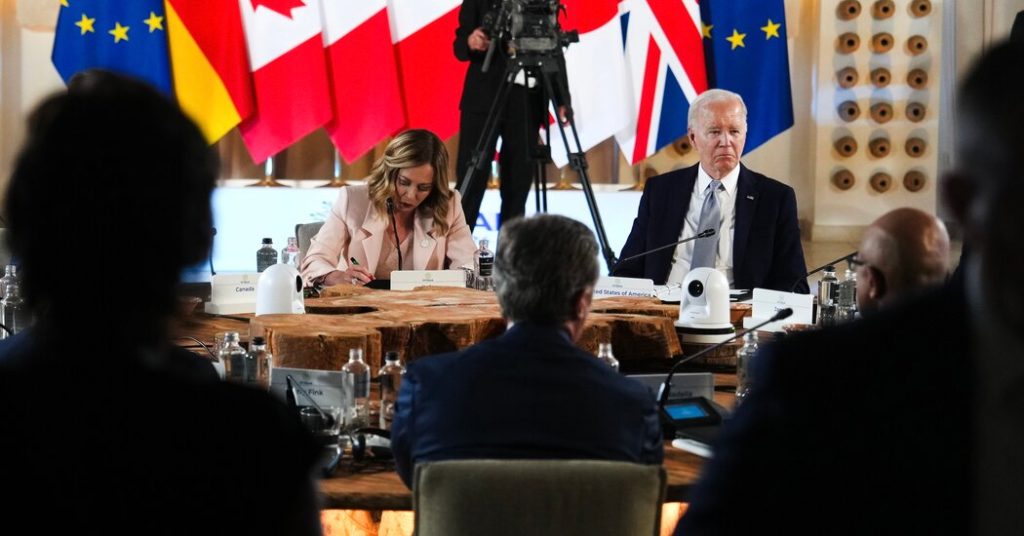The Group of 7 (G7) summit meeting held in Italy will showcase a shifting global landscape as leaders from non-Western countries, including India, Brazil, Turkey, and others, join the stage. The agenda includes thorny issues such as migration, economic competition with China, security in the Indo-Pacific, and relations between the West and the Global South. Italian Prime Minister Giorgia Meloni emphasized the importance of strengthening dialogue with Global South nations and opening up the G7 to the world, while Japanese Prime Minister Fumio Kishida highlighted the need to build stronger relations with partners beyond the group in the face of global challenges.
Leaders like Indian Prime Minister Narendra Modi and Brazilian President Luiz Inácio Lula da Silva will have a significant role at the summit, signaling a recognition that the West is no longer as dominant as it once was demographically and economically. Topics of discussion will include economic security, Africa, the southern Mediterranean, and the challenges posed by artificial intelligence. The issue of migration, compounded by climate change and conflicts in regions like Afghanistan, the Middle East, and Ukraine, will be a key focus, especially for Ms. Meloni, who has campaigned against what she calls “uncontrolled immigration.”
Throughout the day, leaders will engage in one-on-one meetings, including with Pope Francis, who was invited by Ms. Meloni. After the pope delivers a speech, he will meet with leaders such as President Biden, Prime Minister Modi, President Lula, President William Ruto of Kenya, President Erdogan of Turkey, and President Tebboune of Algeria. President Biden is expected to depart Italy after a meeting with the pope, with the day concluding with a concert and an informal dinner. The following day will see more bilateral meetings and closing news conferences by the leaders, discussing the outcomes and future directions resulting from the summit discussions.


